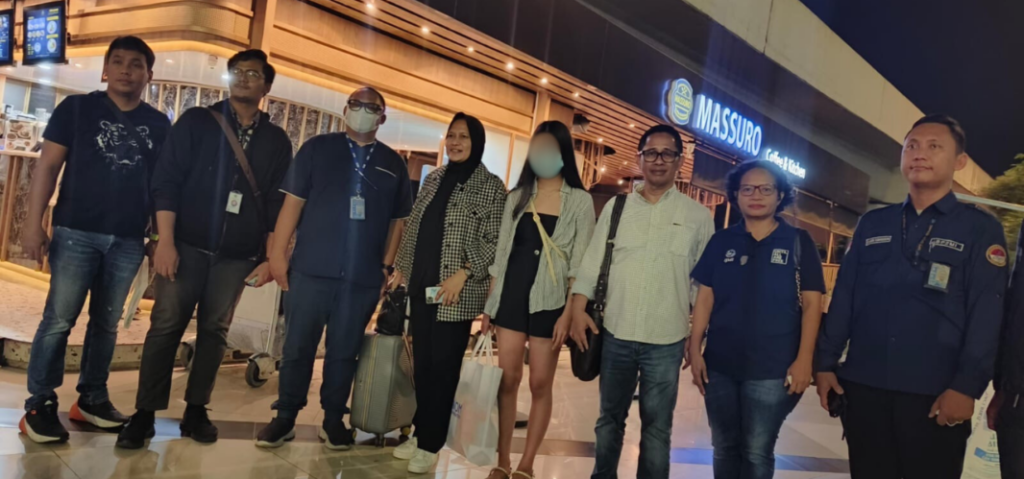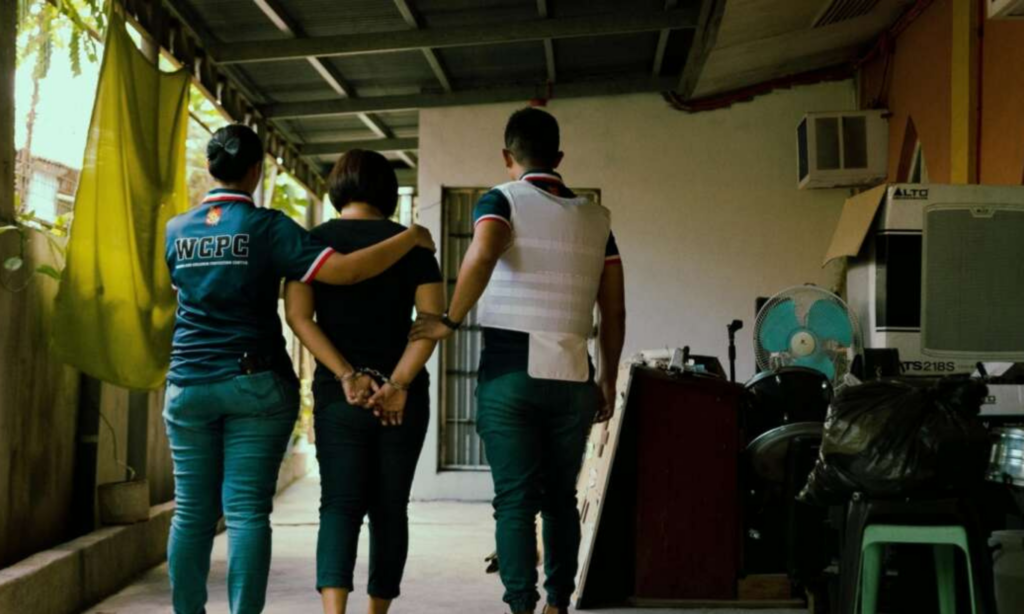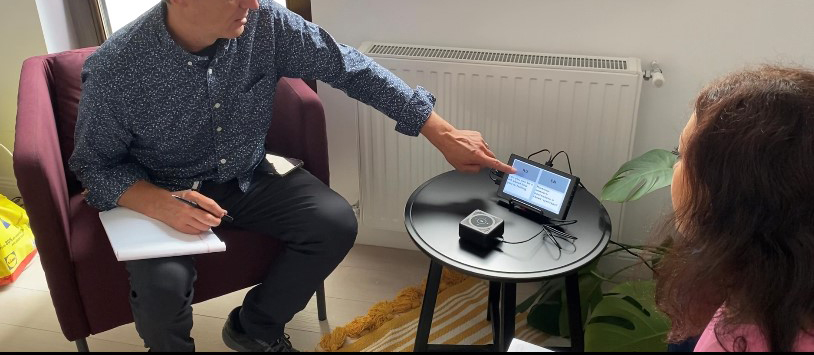
Update from Rick Nidel on IJM’s Ukraine Refugee Response Team
The Ukraine Refugee Response Team currently embedded with IJM Romania has found the language barrier to be one of the greatest challenges facing well-meaning NGO, church, and governmental personnel trying to support vulnerable refugees. From identifying housing, food and medical needs to gathering information about potential cases of attempted trafficking, front-line personnel are often unable to have even the most basic conversations. While many Romanians speak English, many refugees from Ukraine can only speak Ukrainian and Russian.
Two situations have arisen in the last few weeks that have made this problem even more acute:
1) Many of the multilingual early responder volunteers have headed home and
2) Among current flow of refugees there are less resourced persons, some with lower level of education than those that were arriving in earlier waves.
I had been in touch with a friend of mine from undergraduate school who is originally from Moscow but has lived in the US for more than 25 years. I mentioned the problem with translation here and half-seriously asked if he could get some time off to come as a volunteer translator. At this point he mentioned an invention that he had developed to help his recently emigrated parents communicate with the rest of his family who don’t speak Russian. It works without reliance on online language resources because all of the artificial intelligence has been built into it: speech recognition, translation, and speech generation.
Unlike Google Translate or other similar services, the device does not transmit any part of the conversation, its location, participants, etc., into cyberspace. It also has no recording capability. This is especially important in sensitive conversations about potential criminal activity, personal medical and family issues, etc. Further, with the optional solar battery, the device is completely autonomous and can be used for a few hours without an A/C power source.
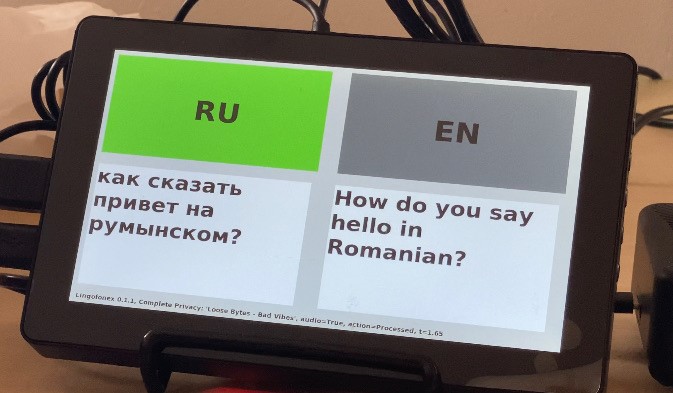
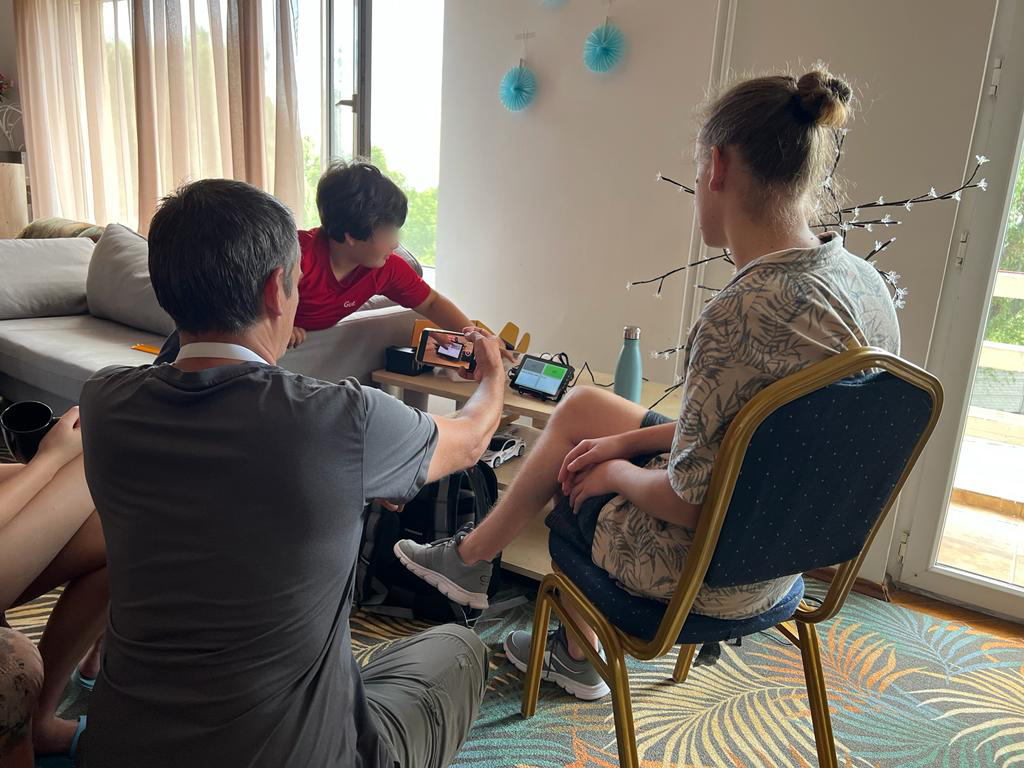
We tested the device with staff, volunteers, and refugees at a church and at another center in Targoviste in July. We also demonstrated it in the IJM office with staff. It performed well. We videotaped the performance tests, and the inventor is making refinements to the device as we speak. Updates to the software are enabled by a USB flash memory stick that captures data from the support site online (using a laptop). The USB is plugged into the device and updates proceed automatically.
In total, my friend has given 5 of the devices to IJM and our partners in Romania. One is on site at the church in Bucharest, one in Targoviste, and there are three remaining. IJM will keep one in the office for use in casework. The other two will soon be provided to partners in other parts of Romania.
The next generation of the device will have Spanish-English capabilities and may be made available commercially, but the current set are prototypes not available anywhere else. This cutting-edge resource allows IJM staff and partners to listen to the needs of Ukrainian refugees arriving in Romania so that we can provide them with the right help and the security of knowing that they have been heard.
Our staff on the frontline have been working closely with local authorities, NGOs and churches to support and protect refugees from being trafficked and exploited. Your generosity will allow us to continue responding to the evolving situation in Ukraine and beyond. Donate now.


